Reversible Transit Circle6 inch Telescope (15 cm) |
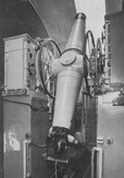 |
Index:
Summary; History; Current; Technical; Sources; Links; Gallery:
In brief
Important Contributions:
This telescope was for a long time the only active transit instrument in the Southern Hemisphere.
Description:
- Designed by David Gill. Became the model for most transit circles made since.
- This telescope was in continuous use for observing the planets and selected stars to provide a fundamental system of star positions which is the observational basis of dynamic astronomy, accurate geodesy and of the determination of stellar motions.
- Instrument was the main source for the southern portion of the Fundamental Katalog (FK4)
Historical Background
The telescope was designed by Sir David Gill and installed in 1905. It was a phenomenal instrument and became the example of how to design a transit circle. The telescope was modernised in the post World War Two period by installing cameras to photograph the declination circles, as well as a host of electronic instrumentation. The instrument remained in use until satelites such as Hipparcos and Gaia came into use rendering the instrument obsolete. [conversation with Ian Glass, Nov 2020, cdc]
Owner:
Cape Observatory
Where Located:
Cape Observatory
Current Information
Present Location:
S.A.A.O. (used to be the Cape Observatory)
Owner:
S.A.A.O.
Status:
Not Operational
Condition:
The building is in serious need of repair. The telescope itself requires a service. The supporting instruments such as cameras to measure the declination will be a great problem to overhaul.
Technical Details
Type: Refractor
Aperture: 6 inch (15.24 cm)
Focal Length:
Lens:
Mounting:
Attachments:
Manufacturer: Troughton and Simms. [Laing, p.13.]
Maintenance:
- The instrument as designed by Gill was completed in 1905 [Laing, p.29.]
- The instrument was modernised with electronics and cameras in the 1950’s and 60’s. [Laing, p.17; p. 9.]
Sources
Documentation:
Pictorial Sources:
- Laing, J.D. (ed.), The Royal Observatory at the Cape of Good Hope 1820 – 1970 Sesquicentennial Offerings.
Bibliography:
- Collins, P. & Moore, P.; Astronomy in Southern Africa, p79.
- Laing, J.D. (ed.), The Royal Observatory at the Cape of Good Hope 1820 – 1970 Sesquicentennial Offerings, p.13; p.17; p.29.
- Smits, P., A Brief History of Astronomy in Southern Africa. (Unpublished)
Links
Gallery
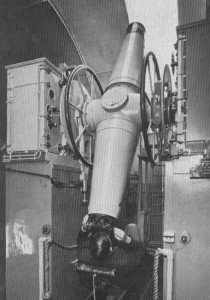
Reversible Transit Circle.
Photo Credit: Charles Field, Wynberg. Source: Laing.
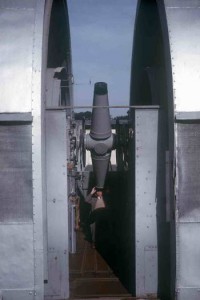
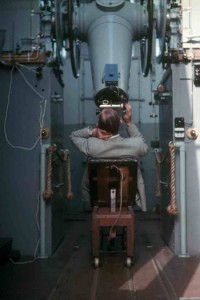
Alexander Menzies at the eyepiece.
Source: A.S.S.A. Archives: Peter Smits Collection.
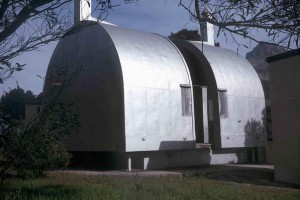
The Dome of the Reversible Transit Circle.
Source: A.S.S.A. Archives: Peter Smits Collection.
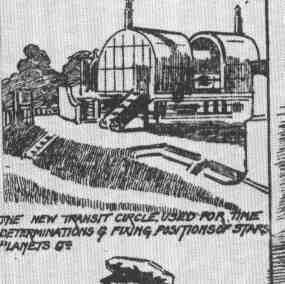
Part of a compilation of sketches concerning the Cape Observatory.
Published by “The Cape Times”, 19 September 1908. Source:Warner – Astronomers.
